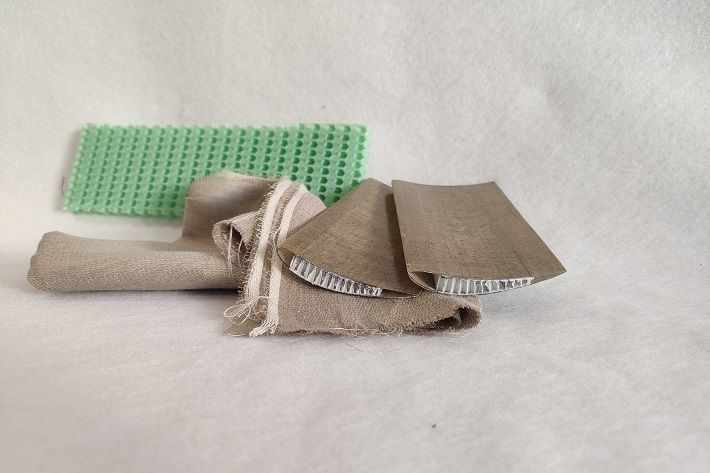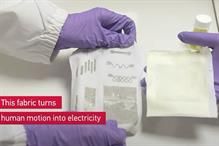
Based on recycled PET material, the rPET honeycomb cores are made up of 100 per cent recycled material, predominantly sourced from non-food postconsumer and industrial PET waste streams to contribute towards overcoming the oversupply of these most problematic PET waste streams, EconCore said in a press release.
Due to its hugely advantageous mechanical performance, low weight, and high temperature stability, rPET is the material of choice for a range of applications including automotive, transportation, building, and construction, industrial packaging / graphical displays, furniture and much more. One industry in particular where the mechanical properties and weight of a material solution can prove the difference between winning and losing is within motorsport.
EconCore’s rPET honeycomb cores are currently being used by Formula Electric Belgium within the front wings of their race car. The team of engineering students produced the front wing skin out of natural flax fibre. Formula Electric Belgium’s commitment to ‘Green Innovation meets Performance’ perfectly encompasses EconCore’s rPET technology. In order to adapt a more sustainable approach without compromising on performance, Formula Electric Belgium substituted the aluminium stiffeners with rPET honeycomb to produce a sandwich panel which was both lighter and more rigid.
For their front wing design, Formula Electric Belgium required a thermoplastic material as it would have to be thermoformed. For the thermoforming of the rPET cores the Formula Electric Belgium team started with constant thickness to shape into the wing, using heated moulds to press the core into shape. Not only did the rPET honeycomb core find its place within the aerodynamics package, the entire undertray of the 220kg race car was also produced from EconCore’s rPET honeycomb cores, according to EconCore.
By optimising the use of rPET honeycomb technology the Formula Electric Belgium team have been able to reduce the wings weight by 26 per cent compared to the same size wing from last year. The lightweight front wing component is also high in rigidity, capable of withstanding forces equivalent to almost 1000 times its own weight. The Titan race car has undergone multiple tests within its various stages of development, under a three-point bending test the wing was capable of withstanding 46kg of force.
“With the rPET honeycomb core, Formula Electric Belgium were able to produce a highly rigid, lightweight front wing component which weighed in at only 50 grams. And at the same time this shows that achieving optimal performance is possible with sustainable materials. Our rPET honeycomb core technology is available to be licensed for a variety of applications and Formula Electric Belgium have perfectly demonstrated the material’s versatility,” Wouter Winant, technical manager at EconCore, said in a statement.
“The rPET honeycomb core was an exciting and interesting material to work with and the entire EconCore team were enthusiastic in supporting us whilst we used their facilities. We can’t wait to put our hard work to the test and see how we perform in our first competition in the Netherlands in July 2022,” Karel Van Wambeke, aerodynamics engineer at Formula Electric Belgium, said.
Fibre2Fashion News Desk (GK)

